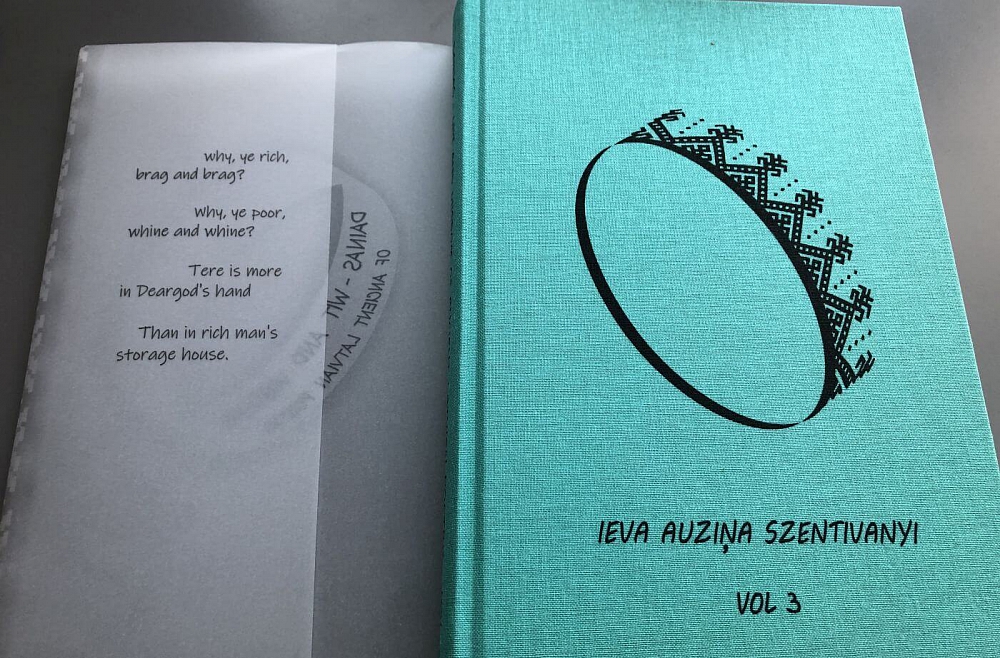The opening celebration of the third volume issue will take place at Berga bazārs in central Rīga, museum and research center Latvians Abroad.
The Dainas (Latvian Folk songs) are four-liners of ancient Latvian wisdom captured in song. Created well over a thousand years ago, Dainas were part of celebrations, daily work, and reflections on life preserved in oral form. There are more than 1.2 million Dainas. The collection of Dainas under the name “The Cabinet of Folk songs” is inscribed in the UNESCO Memory of the World Program.
Ieva Auziņa-Sentivanī splits her life between the USA and Latvia. Latvian Radio meets her in Rīga. The third volume of the dainas adapted into English is thematically dedicated to the culture of work. The dainas, according to Auziņa-Sentivanī, provide an answer on how Latvians could motivate themselves to get through tough outdoor work in even tougher conditions.
"I was surprised at how very, very smart our ancestors were a thousand years ago. There's a thing called neurolinguistic programming. It means you can convince your body to be tough or weak with what you tell it. Our ancestors knew it at least 1,000 years ago. For example [..] in a daina, a huge, heavy, horrible millstone is turned into a toy. It is self-encouragement, neurolinguistic thinking. Isn't that something?"
Translating, or, as Ieva herself says, transforming dainas into English, is no piece of cake – as any ancient text, these use a lot of metaphoric language and language-specific intricacies.
"Latvians have bite (bee) and bitīte (diminutive form of bee). English language only has bee. If i want to say bitīte, I must say, dear bee, lovely bee. But it's not the same, is it?
"I can best explain this by comparing it to musical instruments. If a piece is composed for the violin and [..] transformed for the flute, it will not be the same as it is a different instrument. We should look at languages the same, it is only an instrument to speak a feeling, thought, acknowledgment, big truth, and if it is transferred to another language, it is a different sound."
Ieva Auziņa-Sentivanī is already working on the 4th volume of dainas, which will be dedicated to nature and myth.




























